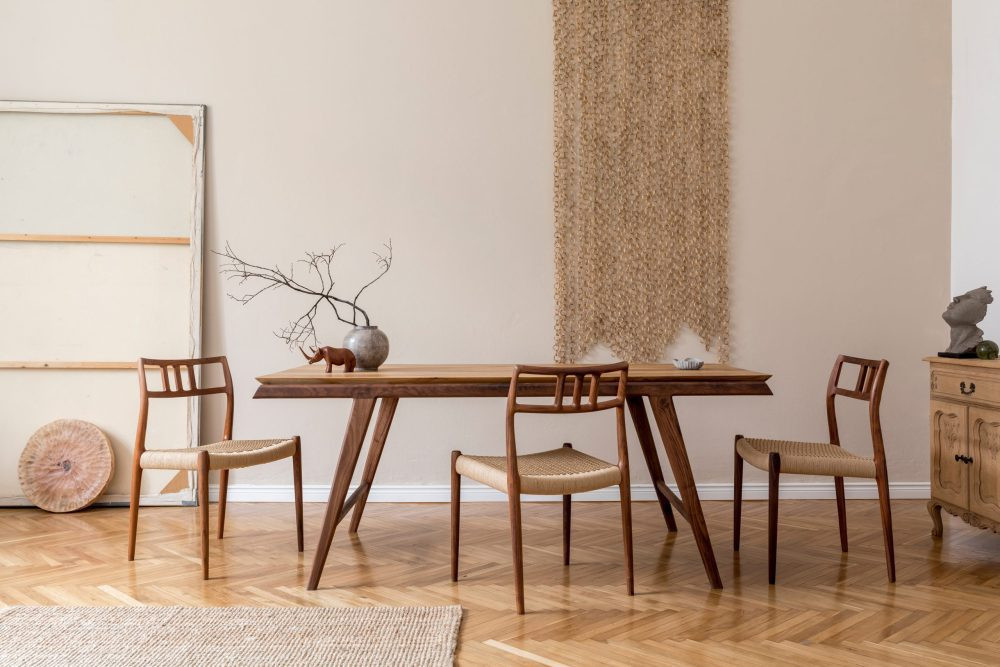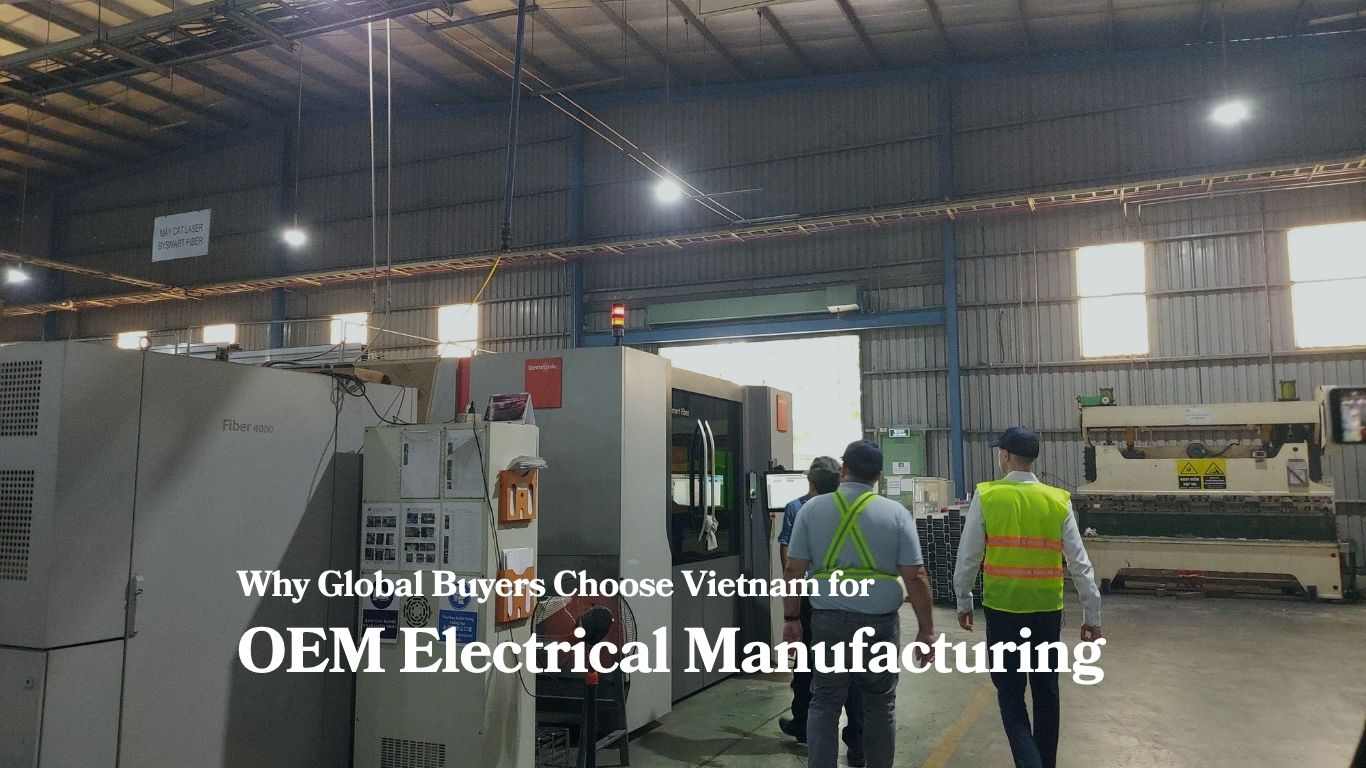Vietnam has become a leading global hub for furniture sourcing, offering a unique blend of high-quality craftsmanship, competitive pricing, and sustainable practices. With its strategic location, abundant natural resources, and skilled workforce, the country is an attractive destination for international buyers looking for reliable furniture suppliers.
This comprehensive guide explores the key aspects of sourcing furniture from Vietnam, providing valuable insights for businesses seeking to optimize their supply chains and tap into this dynamic market.
Why Choose Vietnam? A Leading Furniture Exporter
Vietnam ranks among the top furniture exporters in the world, serving markets such as the United States, the European Union, and the Asia-Pacific region.
Several factors contribute to the country’s success in the furniture industry:
- Abundant Natural Resources: Vietnam is rich in natural materials like rubberwood, acacia, and eucalyptus, which are widely used in furniture production.
- Skilled Workforce: Vietnamese artisans are renowned for their woodworking skills, expertly blending traditional techniques with modern designs to create high-quality products.
- Competitive Labor Costs: The relatively low labor costs in Vietnam enable manufacturers to produce top-quality furniture at competitive prices, making it an attractive option for international buyers.
- Government Support: Policies encouraging foreign investment, along with trade agreements such as the EU-Vietnam Free Trade Agreement (EVFTA), have significantly boosted Vietnam’s furniture industry.
- Sustainability Practices: Many Vietnamese manufacturers adhere to international standards, such as FSC (Forest Stewardship Council) certification, ensuring that the production process is eco-friendly.
Key Furniture Categories for Export
According to Vietnam Industry and Trade News, Vietnam’s furniture industry produces a wide range of products, generating over $16 billion in export value in 2024.
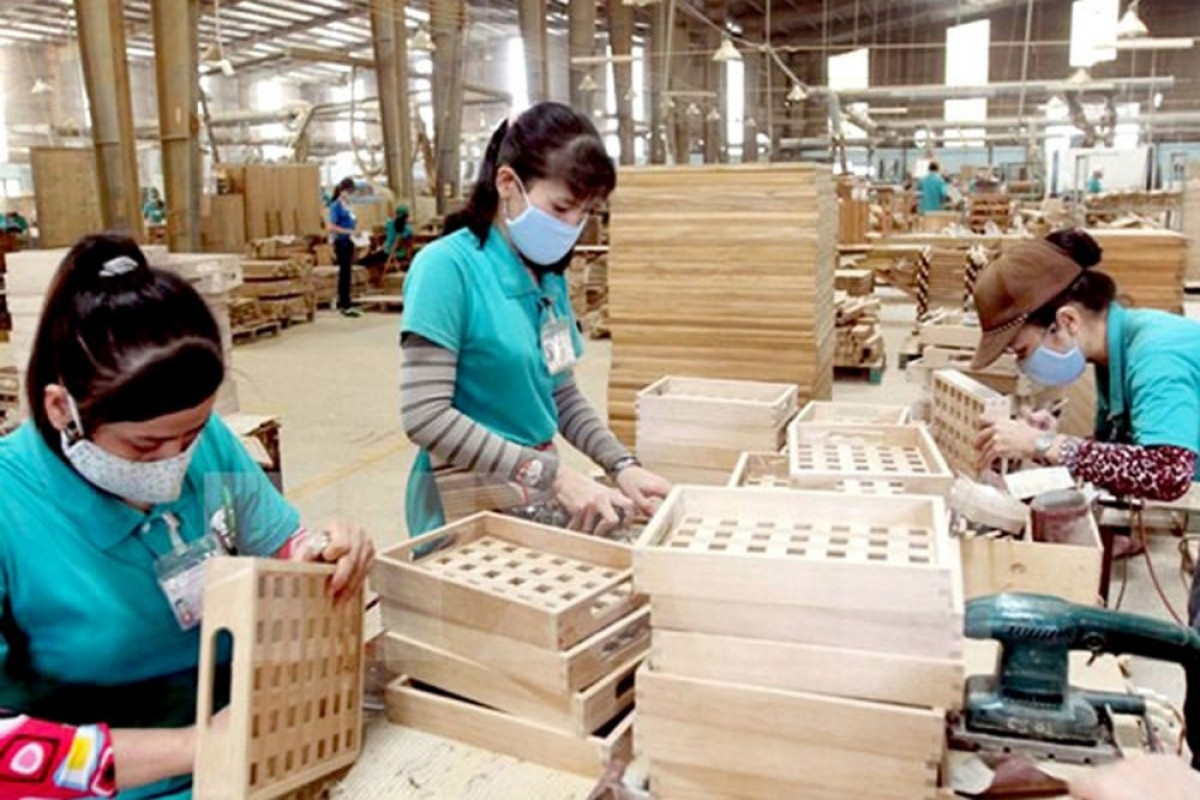
Major furniture categories include:
- Indoor Furniture: This includes dining tables, chairs, sofas, beds, and cabinets made from premium wood and mixed materials. These products are designed for a wide range of interior spaces, from homes to commercial establishments.
- Outdoor Furniture: Vietnam also excels in producing outdoor furniture, such as weather-resistant tables and chairs made from materials like teak, aluminum, and synthetic rattan. These pieces are designed to withstand diverse climates and are popular in international markets.
- Office Furniture: The demand for ergonomic and modern office furniture is growing globally, and Vietnam is meeting this demand with stylish, functional designs suitable for corporate environments.
- Custom Furniture: Many manufacturers in Vietnam specialize in creating bespoke furniture that meets specific client requirements, offering flexibility in design and functionality.
- Decorative Items: Vietnam also exports a range of decorative items, including mirrors, lamps, and wall art, which complement furniture offerings and add aesthetic appeal to various markets.
Top Furniture Manufacturing Hubs in Vietnam
Vietnam has several key manufacturing hubs, each with its own strengths:
- Binh Duong: This region is known for its large-scale factories that produce mass-market furniture, catering to both domestic and international demand. It plays a significant role in Vietnam’s overall furniture export industry.
- Dong Nai: Specializing in outdoor and garden furniture, Dong Nai has become a key player in producing durable, weather-resistant furniture for global markets.
- Ho Chi Minh City: As a major hub for high-end and customized furniture, Ho Chi Minh City is home to many manufacturers that cater to premium markets, offering bespoke designs and high-quality products.
- Quang Nam: Known for its focus on traditional wooden furniture, Quang Nam produces unique, handcrafted pieces that appeal to niche markets looking for artisanal designs.
- Hanoi: Hanoi’s small-scale workshops are renowned for producing handcrafted furniture, meeting the growing demand for bespoke, artisanal items from global buyers seeking distinctive, high-quality pieces.
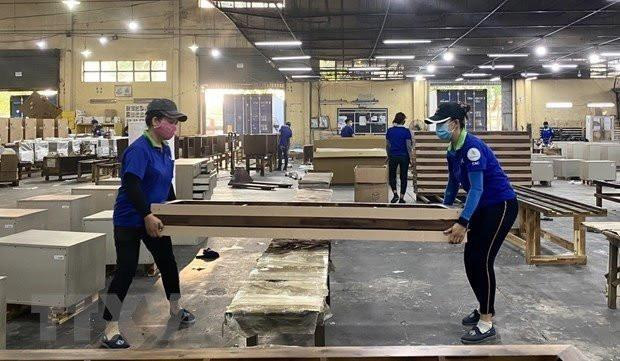
Each of these regions offers specialized expertise and plays a crucial role in Vietnam’s diverse and competitive furniture export sector.
Steps to Source Furniture from Vietnam
1. Research and Identify Potential Suppliers
Start by researching potential suppliers through online platforms like Alibaba, Vietnam Export, or local trade directories. Attending trade fairs such as VIFA-EXPO and Lifestyle Vietnam will also give you direct access to manufacturers and allow you to interact with them face-to-face.
2. Evaluate Supplier Credentials
Before selecting a supplier, verify their credentials, such as certifications (e.g., FSC, ISO 9001). Request client references and review the supplier’s past export records to ensure reliability and consistency in their products and services.
3. Visit Factories
Whenever possible, visit the supplier’s factories to assess their production capacity, quality control processes, and working conditions.
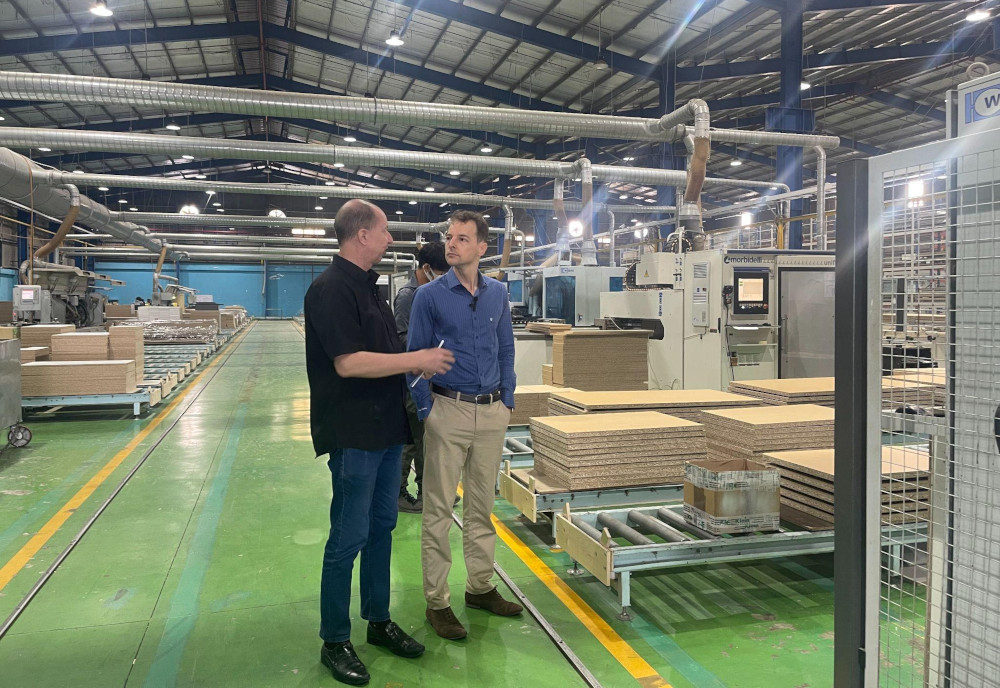
This will help you ensure that the supplier meets your standards for quality and transparency.
4. Negotiate Terms and Pricing
Clear communication is key when negotiating terms. Discuss Minimum Order Quantities (MOQs), lead times, payment terms, and shipping options to optimize costs and ensure both parties are on the same page.
5. Ensure Quality Assurance
Request pre-shipment samples and consider hiring third-party inspectors to verify product quality before shipping. Establish clear quality benchmarks to avoid issues later in the process.
6. Logistics and Shipping
Partner with experienced freight forwarders to handle shipping and understand the necessary export documentation requirements, such as commercial invoices, packing lists, and certificates of origin.
Common Challenges and How to Overcome Them
When sourcing furniture from Vietnam, international buyers may encounter several challenges that can affect the smooth flow of their operations. One of the most common hurdles is language barriers. Although English is widely spoken in business contexts, communication issues can still arise due to regional dialects or different technical terms. To mitigate this, working with bilingual agents or local sourcing companies can help bridge any communication gaps, ensuring that negotiations and instructions are clear and that misunderstandings are minimized.
Another challenge is quality control, which can vary significantly across different suppliers. To address this, it is essential to establish a thorough quality control process from the outset. This includes conducting regular inspections throughout the production cycle, ensuring that the products meet the agreed-upon standards. Additionally, having a clear quality assurance plan and setting expectations with your supplier early on can help prevent quality-related issues and protect your business from costly mistakes.
Cultural differences also play a role in successful supplier relationships. Understanding the nuances of Vietnamese business etiquette is critical for building trust and long-term partnerships. In Vietnam, respect for hierarchy, punctuality, and formality are highly valued, and a failure to acknowledge these cultural norms can lead to misunderstandings. Taking time to learn these practices and showing respect for local traditions can go a long way in fostering better collaboration and ensuring smoother negotiations.
Lastly, supply chain delays can occur, especially during peak production seasons or unforeseen global disruptions. To minimize the impact of delays on your business, diversifying your supplier base and maintaining strong relationships with multiple manufacturers can provide more flexibility.
Additionally, planning ahead and allowing for longer lead times can help you avoid bottlenecks and ensure that your orders arrive on time.
By proactively addressing these challenges, businesses can successfully navigate the complexities of sourcing furniture from Vietnam and build strong, reliable supply chains.
Partnering with a Sourcing Agency
For businesses looking to simplify the sourcing process, partnering with a local sourcing agency can be a great option. Sourcing agencies such as MoveToAsia specialize in connecting international buyers with trusted Vietnamese manufacturers, ensuring smooth negotiations, reliable product quality, and seamless logistics management.
Sustainability and Ethical Sourcing
As global consumers become more environmentally conscious, sustainable sourcing practices are becoming increasingly important. Many buyers now prefer eco-friendly furniture made from reclaimed wood, water-based finishes, and low-impact production methods. Additionally, ethical labor practices, including fair wages and safe working conditions, should be prioritized when selecting suppliers.
Vietnam’s furniture industry presents significant opportunities for international buyers looking for quality, affordability, and sustainability. By understanding the market dynamics and following a structured sourcing process, businesses can successfully navigate this vibrant sector. Whether you’re a retailer, wholesaler, or designer, Vietnam offers the resources, craftsmanship, and expertise needed to bring your furniture concepts to life.

